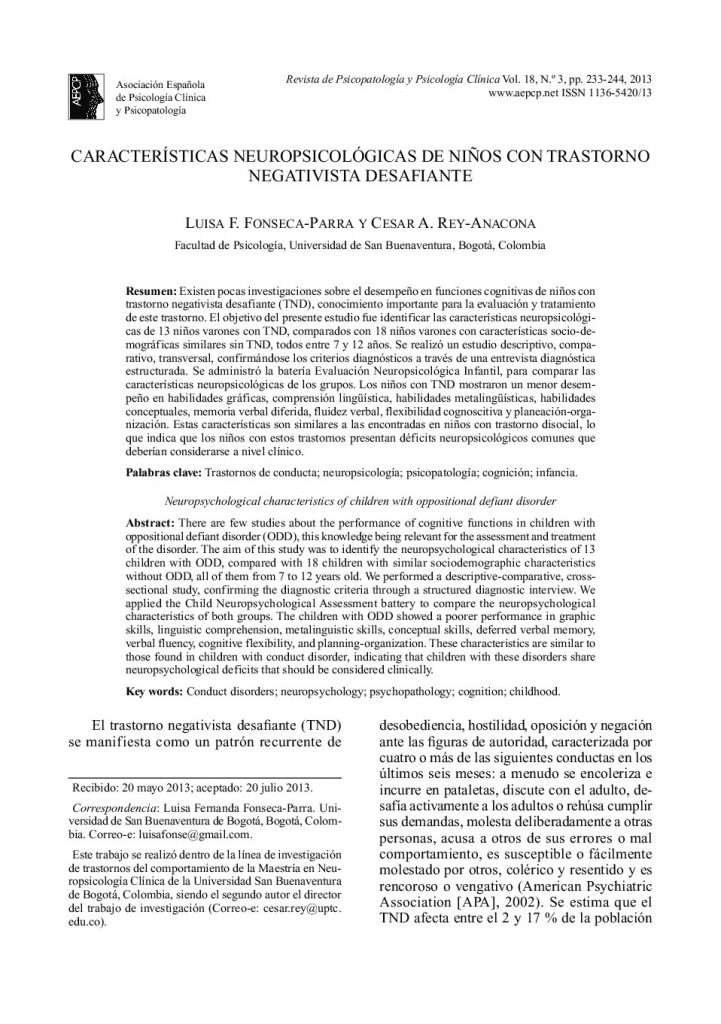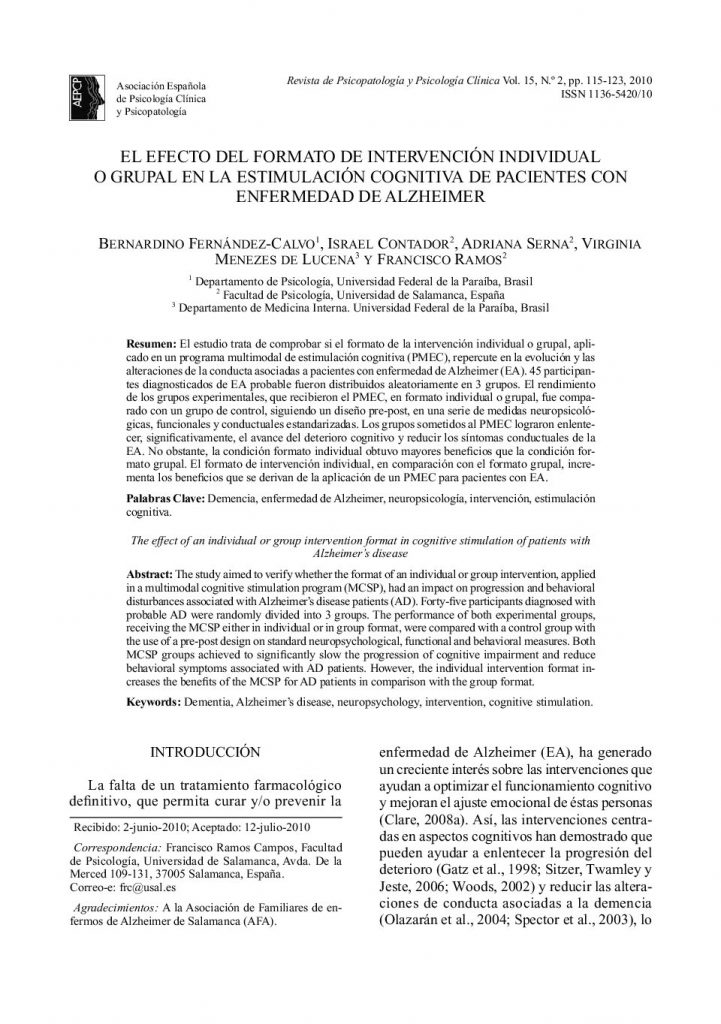Características neuropsicológicas de niños con trastorno negativista desafiante.

- Hábitos y problemas de sueño en niños con sintomatología depresiva.
- Sexism and Eating Disorders: Gender differences, changes with age, and relations between both constructs.
- Efectos del tipo de diabetes, estrategias de afrontamiento, sexo y optimismo en el apoyo social.
- Training to improve selective attention in children using neurofeedback through play.
- Trastornos leves del espectro autista en educación infantil: Prevalencia, sintomatología co-ocurrente y desarrollo psicosocial.
- Características neuropsicológicas de niños con trastorno negativista desafiante.
- Utilidad de los marcadores biológicos en la detección precoz y prevención del síndrome de burnout.
- DSM-5: ¿Cambio de paradigma en la clasificación de los trastornos mentales?.
- Simons, G. y Hofmann, S. G.(2013). CBT for anxiety disorders: A practitioner book.Chichester (UK): Wiley-Blackwell.
- Geekie, J. y Read, J. (2012). El sentido de la locura. Barcelona: Herder.
- Información sobre criterios de calidad de la Revista de Psicopatología y Psicología Clínica.
There are few studies about the performance of cognitive functions in children with oppositional defiant disorder (ODD), this knowledge being relevant for the assessment and treatment of the disorder. The aim of this study was to identify the neuropsychological characteristics of 13 children with ODD, compared with 18 children with similar sociodemographic characteristics without ODD, all of them from 7 to 12 years old. We performed a descriptive-comparative, cross-sectional study, confirming the diagnostic criteria through a structured diagnostic interview. We applied the Child Neuropsychological Assessment battery to compare the neuropsychological characteristics of both groups. The children with ODD showed a poorer performance in graphic skills, linguistic comprehension, metalinguistic skills, conceptual skills, deferred verbal memory, verbal fluency, cognitive flexibility, and planning-organization. These characteristics are similar to those found in children with conduct disorder, indicating that children with these disorders share neuropsychological deficits that should be considered clinically.
Existen pocas investigaciones sobre el desempeño en funciones cognitivas de niños con trastorno negativista desafiante (TND), conocimiento importante para la evaluación y tratamiento de este trastorno. El objetivo del presente estudio fue identificar las características neuropsicológicas de 13 niños varones con TND, comparados con 18 niños varones con características socio-demográficas similares sin TND, todos entre 7 y 12 años. Se realizó un estudio descriptivo, comparativo, transversal, confirmándose los criterios diagnósticos a través de una entrevista diagnóstica estructurada. Se administró la batería Evaluación Neuropsicológica Infantil, para comparar las características neuropsicológicas de los grupos. Los niños con TND mostraron un menor desempeño en habilidades gráficas, comprensión lingüística, habilidades metalingüísticas, habilidades conceptuales, memoria verbal diferida, fluidez verbal, flexibilidad cognoscitiva y planeación-organización. Estas características son similares a las encontradas en niños con trastorno disocial, lo que indica que los niños con estos trastornos presentan déficits neuropsicológicos comunes que deberían considerarse a nivel clínico.




